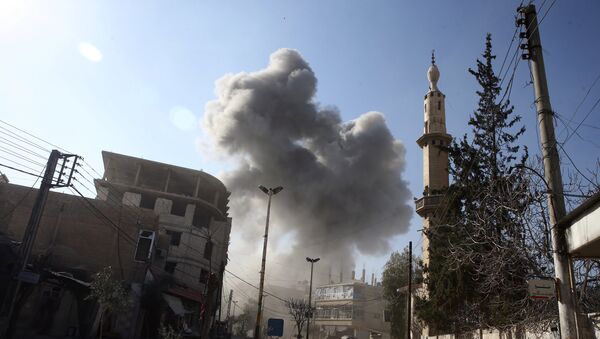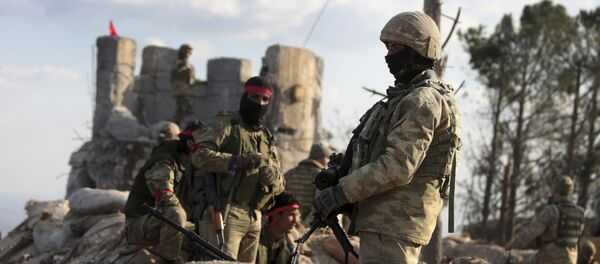Moscow is worried by reports about the possible use of force against Damascus; this will completely contradict the meaning and content of UN Security Council resolution 2401 on Syria, said Russia's Deputy Foreign Minister Sergei Ryabkov.
"In the context of resolution 2401, it is important for us, first of all, that it calls on all the Syrian parties to engage in an intensive search for those decisions that are necessary. We are extremely worried by reports that, against the backdrop of a general increase in rhetoric against Damascus and anti-Russian rhetoric in Washington, threats of the use of force are again heard: unlawful, illegal. They are looking for pretexts for this," Ryabkov told reporters.
READ MORE: UN Security Council Resolution on Syria Won't Affect Operation in Afrin — Ankara
According to him, "this completely contradicts the meaning and content of resolution 2401."
All those who showed concern about the humanitarian situation in Syria must comply with the UN Security Council resolutions, Sergei Ryabkov added.
According to the Russian Defense Ministry, the monitoring of compliance with the ceasefire in Syria has quelled incessant violations in the provinces of Aleppo, Latakia and Idlib.
The Defense Ministry also noted that the "al-Nusra Front" militants continue to detain hundreds of hostages, including women and children. In addition, the ministry added that illegal armed groups continue to block the possibility of civilians leaving eastern Ghouta.
US North Korea Inspections
The US idea to inspect suspicious North Korean cargoes contradicts previously reached agreements, Ryabkov said.
"We are alarmed that at the moment when there seemed to appear prospects for establishing dialogue between Pyongyang and Seoul and when the pause related to the Olympic Games was made, the United States took a regular step with the aim of increasing pressure on the DPRK," Ryabkov told reporters.
"Among other things, this concerns unilateral US measures to inspect so-called suspicious cargoes. This contradicts the understandings that were achieved earlier in collective formats, including the so-called initiative to combat proliferation of weapons of mass destruction, where we also take part," he said.
Ryabkov added that opportunities to additionally expand sanctions against North Korea in the UN Security Council have almost been exhausted.
Earlier, the US imposed restrictions on 27 shipping and trading companies, 28 vessels and 1 individual from the DPRK, China, Singapore and other countries.
In August, the UNSC imposed sanctions on North Korea targeting exports of coal, iron ore, lead and seafood.
In December, more sanctions against North Korea were imposed over the country's continuing ballistic missile tests.



